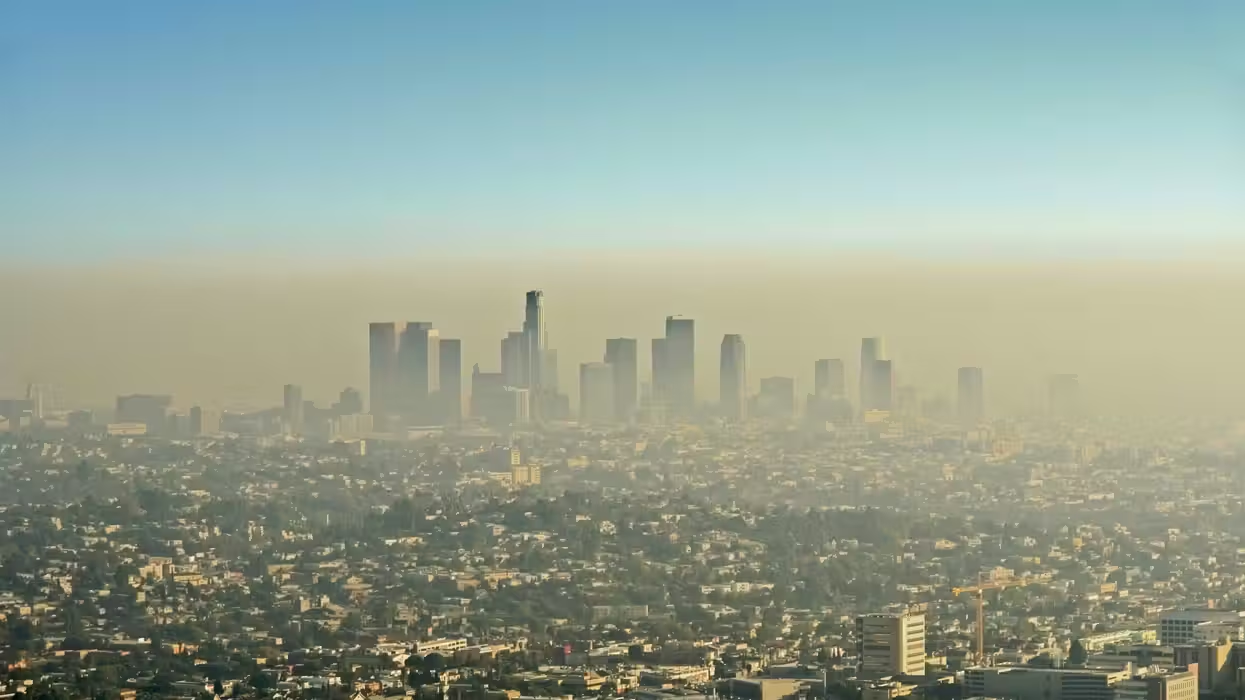
© 2025 Blaze Media LLC. All rights reserved.
Royal Society Report Recommends Birth Control, 'Wealth Measures' to Achieve an 'Equitable Future for Humanity
April 27, 2012
"...what number is the right number, who decides and who enforces it?"

Twenty-three scientists got together in a working group for the Royal Society -- a fellowship of scientists who encourage use of science to benefit humanity -- for 21 months to discuss "how can the world balance the need for economic growth and forestall ecological disaster," as David Biello puts it on Scientific American's blog.
The recommendations they've come up with in their report "People and the Planet" include managing the population along its current rate of decline and developing methods to "reduce [economic] inequality". Royal Society notes the recommendations made in the report are not a "definitive statement" as the concepts discussed are complex, but it is an overview of human impact on the environment and "policy guidance [for] decision makers and [...] interested members of the public".
Here are some of the key recommendations made in the report:
- The international community must bring the 1.3 billion people living on less than $1.25 per day out of absolute poverty, and reduce the inequality that persists in the world today. This will require focused efforts in key policy areas including economic development, education, family planning and health.
- The most developed and the emerging economies must stabilise and then reduce material consumption levels through: dramatic improvements in resource use efficiency, including: reducing waste; investment in sustainable resources, technologies and infrastructures; and systematically decoupling economic activity from environmental impact.
- Reproductive health and voluntary family planning programmes urgently require political leadership and financial commitment, both nationally and internationally. This is needed to continue the downward trajectory of fertility rates, especially in countries where the unmet need for contraception is high.
- Population and the environment should not be considered as two separate issues. Demographic changes, and the influences on them, should be factored into economic and environmental debate and planning at international meetings, such as the Rio+20 Conference on Sustainable Development and subsequent meetings.
Here Eliya Msiyaphazi Zulu, the executive director of the African Institute for Development Policy who was a member of the Royal Society working group for this report, explains that if there is to be an "equilibrium between people and planet" the consumption of the West and other developed countries has to be reduced and the other end of the spectrum -- the 1.3 billion poorest in the world -- need to be supported in some way:
Biello writes some of what the scientists recommend is already happening, like population control. According to Biello, the rate of population growth has been declining since the 1960s, thanks to "empowerment of women," which he notes comes with other benefits as well. He also notes more people are moving back to urban environments, instead of widespread rural or suburban homesteads, which he says "may help reduce the global impacts of the extended family of man."
Biello also brings up an interesting dichotomy with the scientists' recommendation to curb the the rate of population growth. He writes:
Fears of the wrong sort of population growth have a long dark, history, but actual history suggests that an excess of humanity can actually be a good thing, providing the renewable resource of human ingenuity that then fuels economic development (and world-changing scientific ideas). Plus, there is the troubling question of: what number is the right number, who decides and who enforces it? As the Royal Society’s motto goes “take nobody’s word for it.” Not even the Royal Society’s.
All this comes at a time when scientists have relatively recently been using the term anthropocene to describe a new geologic era, defining the time period from roughly the Industrial Revolution to present day. Recently, the Planet Under Pressure conference commissioned a video that showcases the effect of human activity on the Earth:
The group Globaïa, which focuses on environmental issue education, produced the animation, which comes with a message that there are solutions that can help reduce some of the detrimental effects humans have had on the environment.
What are your thoughts on the report recommendations? The animation?
Want to leave a tip?
We answer to you. Help keep our content free of advertisers and big tech censorship by leaving a tip today.
Want to join the conversation?
Already a subscriber?
more stories
Sign up for the Blaze newsletter
By signing up, you agree to our Privacy Policy and Terms of Use, and agree to receive content that may sometimes include advertisements. You may opt out at any time.
Related Content
© 2025 Blaze Media LLC. All rights reserved.
Get the stories that matter most delivered directly to your inbox.
By signing up, you agree to our Privacy Policy and Terms of Use, and agree to receive content that may sometimes include advertisements. You may opt out at any time.






